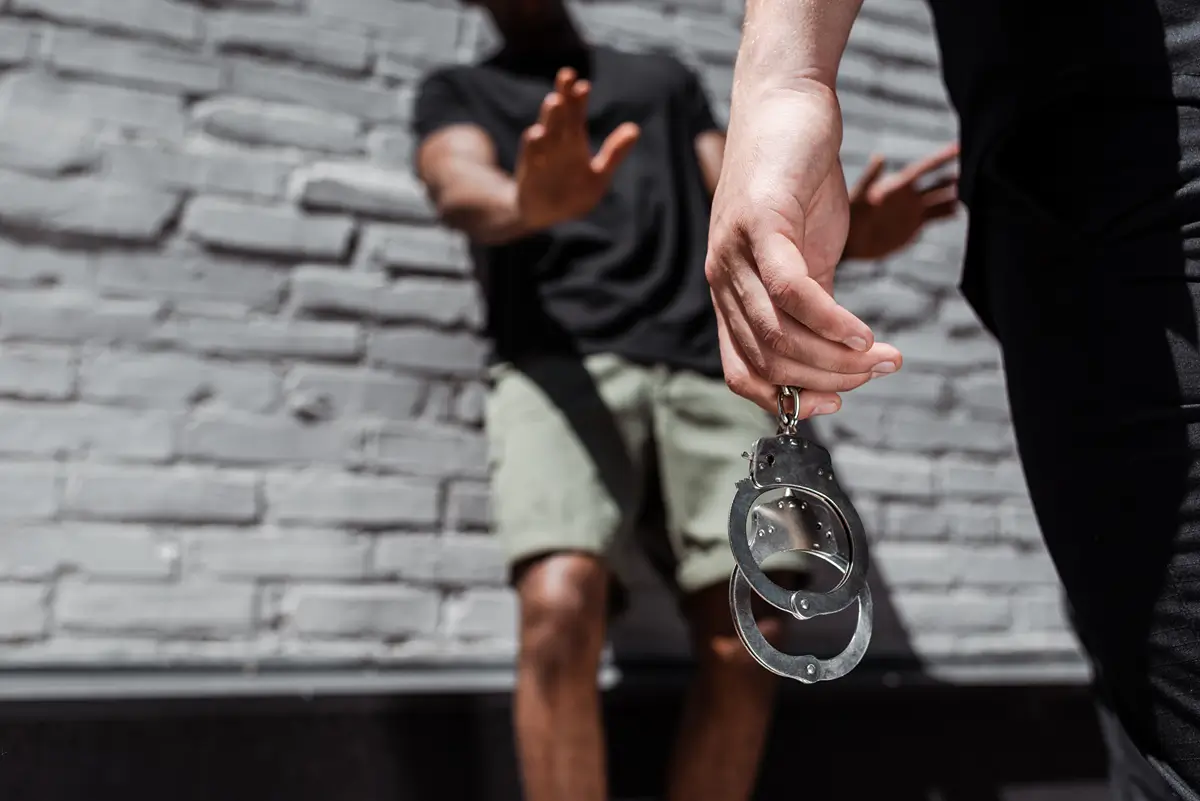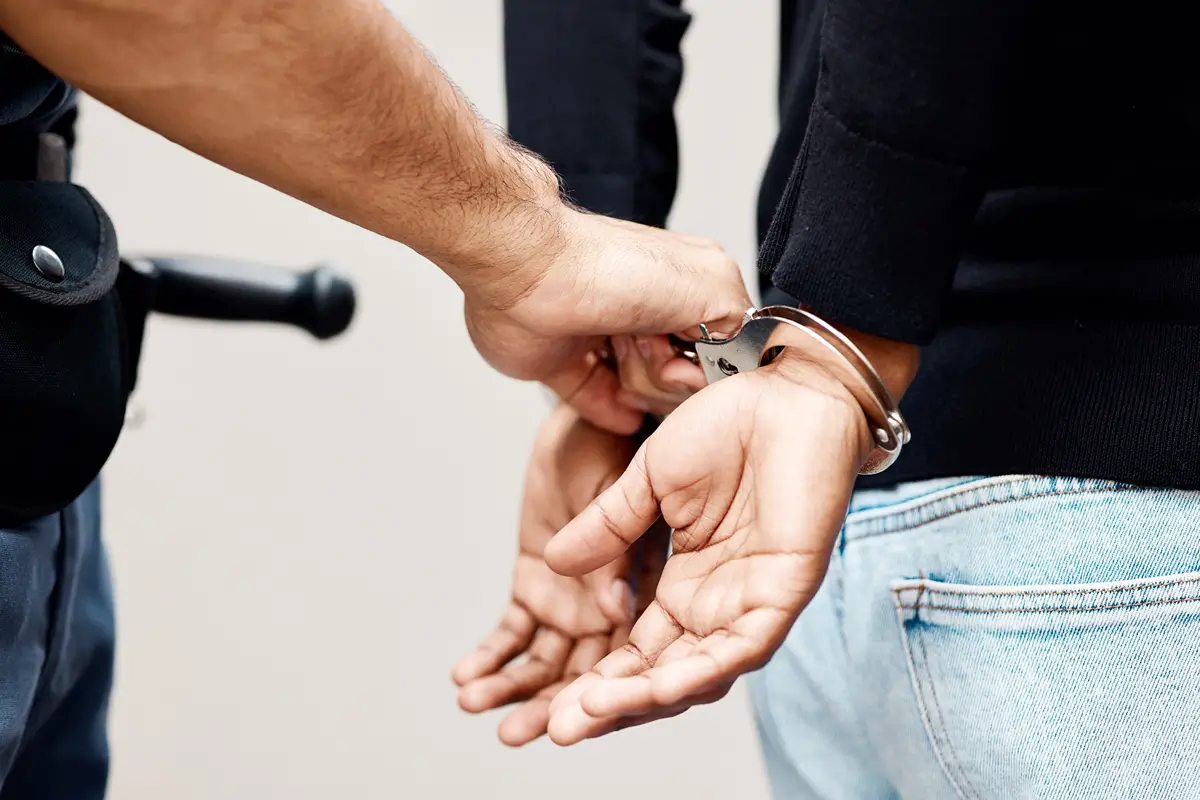Our first two posts about United States vs. Shipp provided the background on trial of Ed Johnson in Chattanooga, Tennessee, for the rape of Nevada Taylor. Having proceeded thru the trial and sentencing of Mr. Johnson, it’s time to meet the next members of this drama.
Noah W. Parden and Styles L. Hutchins were the leading black lawyers in Chattanooga, and two of the better-known black lawyers in the southern Tennessee area at the time. While they were not officially part of Ed Johnson’s defense team, they were instrumental in helping to track down alibi witnesses. When Mr. Johnson’s father came to their office asking the lawyers to take his sons case on appeal, Mr. Parden was reluctant due to the sensational nature of the case and the risk that could befall their practice. But Mr. Hutchins was persistent on his partner, and the two undertook the post-conviction review of Mr. Johnson’s case.
On February 13, 1906, the lawyers stood before Judge Samuel McReynolds asking for a new trial for Mr. Johnson. They argued that there was significant doubt about the guilt of Mr. Johnson, and that his previous lawyers had abandoned him by convincing Mr. Johnson to waive his right of appeal. This plea was quickly disposed of by Judge McReynolds, citing a local rule stating that motions for a new trial needed to be filed within 72 hours of a verdict. Judge McReynolds further scolded Mr. Parden and Mr. Hutchins, stating “What can two Negro lawyers do that the defendant’s previous three attorneys were unable to achieve? Do you know the law better than this court or the lawyers who represented the defendant? Do you think a Negro lawyer could possibly be smarter or know the law better than a white lawyer?”
On February 20, 1906, Mr. Parden and Mr. Hutchins filed an appeal with the Tennessee Supreme Court, as well as a writ of supersedeas seeking an emergency stay of the execution. The Tennessee Supreme Court unanimously denied the appeal on March 3, 1906.
Running out of options, Mr. Parden and Mr. Hutchins filed a petition in the United States District Court in Knoxville, Tennessee, under the Habeas Corpus Act of 1867. This was the longest of longshots, because no one was really sure what it might accomplish.
The Habeas Corpus Act allowed defendants in state criminal actions to request that a federal court review the case if the defendant believed that they had been imprisoned in violation of their federal constitutional rights. In 1906, these federal constitutional rights hadn’t been very well defined, and wouldn’t be for several more decades, and the common feeling among lawyers at the time was that a federal habeas petition was effectively useless.
The nine-page Petition filed by Mr. Parden and Mr. Hutchins argued that Ed Johnson’s lawyers were denied the right to file pre-trial motions; that the trial was unfairly influenced by the threat of mob violence; that only white people were summoned to jury service; that Mr. Johnson’s lawyers had abandoned him by advising him to waive his appellate rights; and that there were numerous irregularities in the conduct of the trial, including the fact that a juror attempted to attack the defendant in open court. District Judge C.D. Clark ordered that a hearing would be held on March 10, 1906.
The hearing lasted for about eight hours. Among the witnesses who were called were Mr. Johnson’s original lawyers, who confirmed the allegations in the Petition and testified that the threat of a lynch mob influenced their decisions. A Deputy Clerk in the Hamilton County Clerk’s Office testified that he could remember only one black person ever having been summonsed in for jury duty. Hamilton County District Attorney Madison N. Whitaker argued that there had been no violation of Ed Johnson’s federal rights (which, remember, weren’t very well-defined at this time), and Judge Samuel McReynolds, who had presided over the trial, testified that the trial was, in fact, fair.
Judge Clark deliberated on the Petition for a little over three hours, and announced his decision at 12:47 a.m. on March 11, 1906. He noted that “counsel were to an extent terrorized on account of the fear of a mob” and that he had doubts about the State’s case against Mr. Johnson. However, he did not believe that the Constitution authorized him to grant the habeas petition, but he did grant a 10-day stay of the execution to allow for Mr. Johnson’s attorneys to appeal directly to the Supreme Court of the United States.
The newspapers did not react to the stay of execution kindly. Judge McReynolds claimed that federal judges had no authority to issue stays in state criminal cases. Tennessee Governor William Cox granted Mr. Johnson only a seven-day stay of execution. More lawyers were quoted by the newspapers as stating that the appeal to the Supreme Court was frivolous, and would be quickly rejected. The Law Offices of Parden and Hutchins was burned to the ground on March 15, 1906, and rocks were thrown thru the windows and gunshots fired at Mr. Parden’s house.
On March 16, 1906, Noah Parden filed the official appeal of the denial for federal habeas with the U.S. Supreme Court Clerk. It was the first time in history that a black attorney would be lead Counsel in a case before the Supreme Court.
Mr. Parden made his argument directly to Justice John Marshall Harlan. Justice Harlan was from Kentucky and a slaveholding family, but had fought for the Union in the Civil War. He was appointed to the Supreme Court in 1877 by President Rutherford B. Hayes, and is best known today for his dissent in the case of Plessy vs. Ferguson.
Mr. Parden pointed out specific violations of the Fourth, Fifth, Sixth, and Fourteenth Amendments, and argued that “[t]he atmosphere in the community was so poisoned that there was no way Ed Johnson could have received a fair trial from an impartial jury. Everybody in that courtroom knew going in what they were going to do. They were there to give Ed Johnson a trial, and then they were going to hang him.”
On March 18, 1906, Noah Parden stepped to the platform from his returning train to Chattanooga, Tennessee to be excitedly greeted by Styles Hutchins. Mr. Hutchins held in his hand a telegram from Washington, D.C.: “Have allowed appeal to accused in habeas corpus case of Ed Johnson. Signed: John M. Harlan, Associate Justice.”






